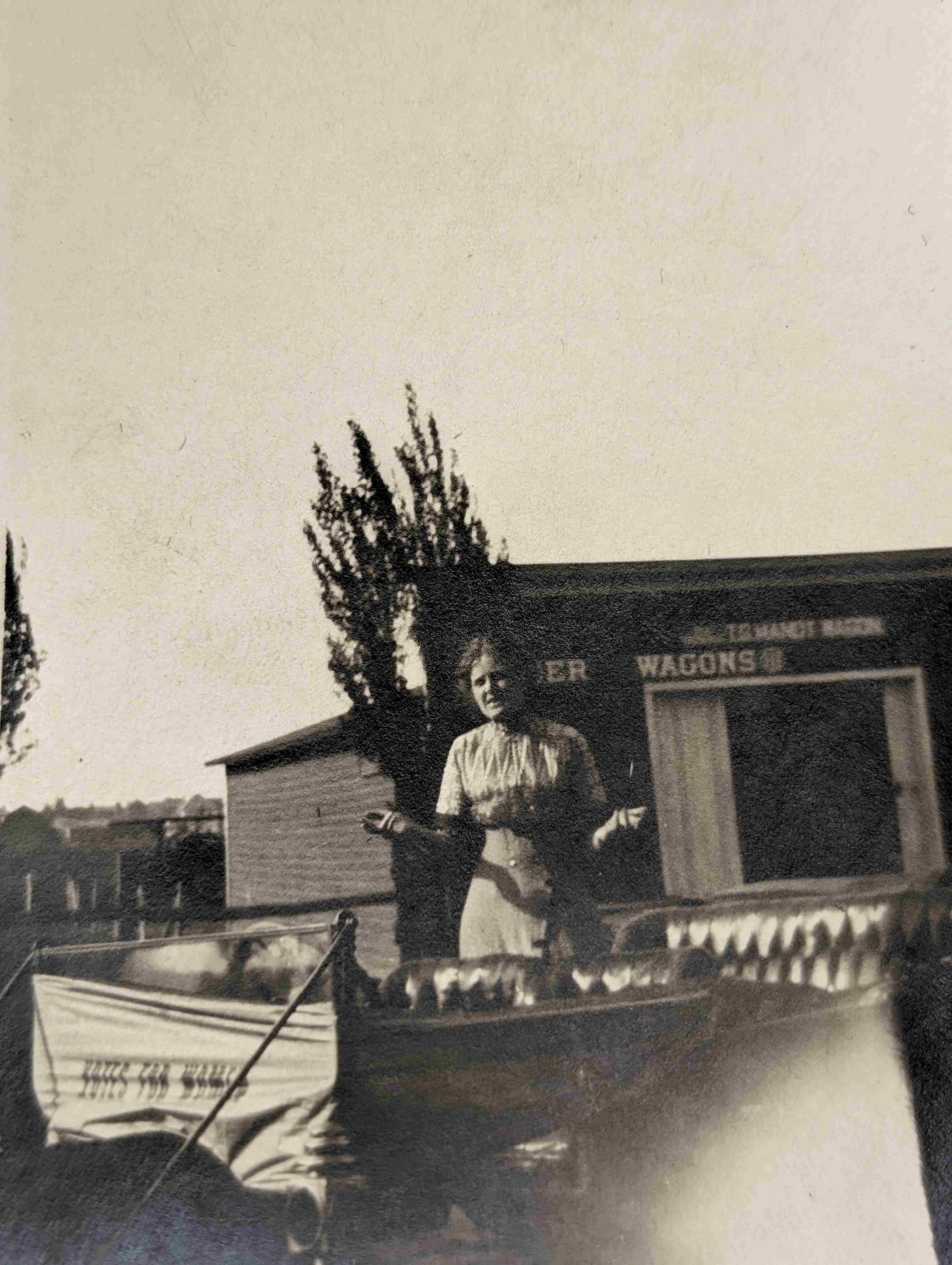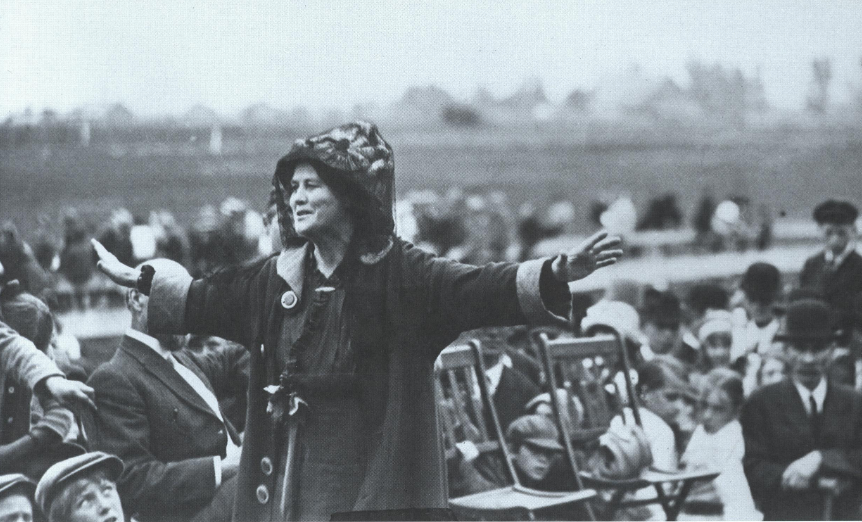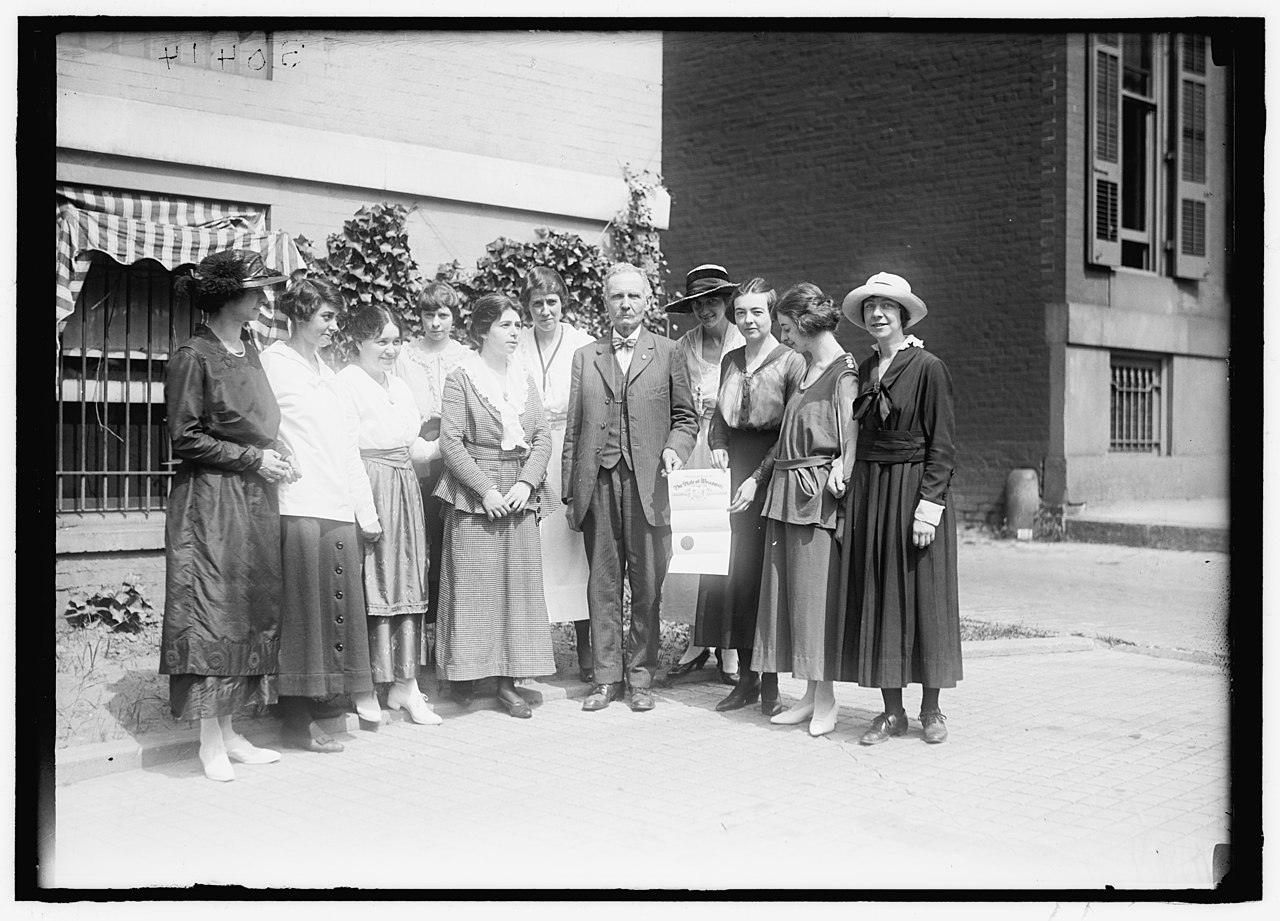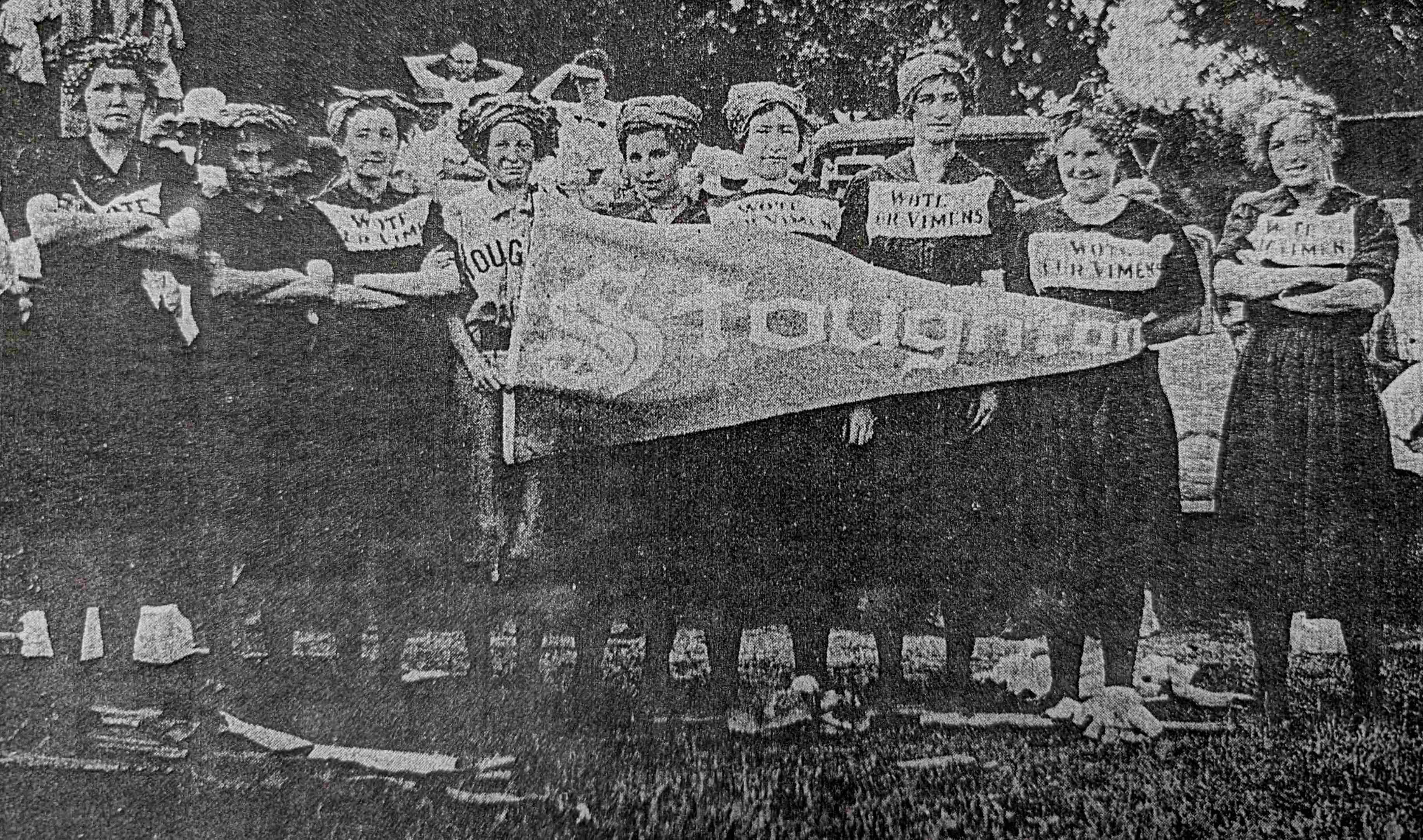Women's Christian Temperance Union (W. C. T. U.) and Women’s Suffrage
In the late 1800’s the national W.C.T.U. movement pushed for
two big causes. Temperance (moderation
or abstinence from alcohol) and Suffrage (the right to vote in political
elections).
Historians say drinking was
heaviest in the early 1800’s before the start of the temperance movement. Women had little economic and political
power and were vulnerable to poverty and abuse if men in their
families were alcoholics. [1]
Women and men worked together in Stoughton to raise
support for moderation and eventually changed the city’s alcohol licensing laws. W. C. T. U. and 1890 "no license" vote.
The W. C. T. U. endorsed suffrage in 1881 and its tens of
thousands members formed the grassroots of the suffrage movement.
Auto tours became a standard means to reach women and gave suffragists a platform to speak. Shown below is Harriet Grim speaking in
Stoughton in 1912.

Photo used with permission, Wisconsin Historical Society Image ID: 84876 Description: Harriet Grimm speaking from a vehicle bearing a banner that reads, "votes for women." She is stopped in front of T.G. Mandt's wagon shop. [2]
Harriet Grim was an ardent suffragist in Illinois and Wisconsin. In 1913 she became a teacher of English in Darlington High School, but on the theory that a teacher should know business, she then purchased a car dealership in Mineral Point. Later she came to the University of Wisconsin earning her M.A. and PhD. and became a speech professor at the University until she retired in 1952. [3]
Belle Case La Follette, first female graduate of the University of Wisconsin Law School and wife of “Fighting Bob” La Follette . She traveled the country as an advocate for women’s suffrage and spoke against racial segregation. [4]

Belle Case La Follette speaking in 1912 [4]
Ada James was a strong
advocate for women’s suffrage and the Political Equality League.
Wisconsin
was the first state in the nation to ratify the 19th Amendment after her father, State
Senator David G. James took the train to hand deliver the ratification
documents to the State Department in Washington DC.
She was a champion in Wisconsin over many years for such causes as temperance,
women’s rights and suffrage, integrity in politics, and of social, child labor,
prison, and industrial reforms. As a child
she attended suffrage conventions with her mother, Laura Briggs James, and grandmother, Mary Hurlbut. Ada recalled
visits of Susan B. Anthony, Elizabeth Cady Stanton, and other pioneer
suffragists to Richland Center.

Wisconsin 19th Amendment Ratification, being held by David G. James [4]
Laura Briggs James - Early in 1882 the first women’s club for suffrage in Wisconsin was
organized by Laura in Richland Center. By the summer of 1882, the Richland Center club was the largest suffrage organization in the state. Laura was also a charter and active member of the Wisconsin
Suffrage Association. [5]
Ada's grandmother, Mary Hurlbut, organized a branch of the Woman's Club in Sextonville. [5]
Resources:
[1] National Parks Service Suffrage Articles
[2] Wisconsin Historical Society Library Archives
[3] Harriett Grim obituary, Wisconsin State Journal, 9 Sep 1967,
page 16.
[4] Wikipedia Suffrage in Wisconsin
[5] On Wisconsin Women by Genevieve G. McBride, pages xxiii, 101-102
Timeline of Wisconsin Women’s Suffrage

Stoughton Women's baseball team circa 1913. Some with "Wotes For Vimens" signs.